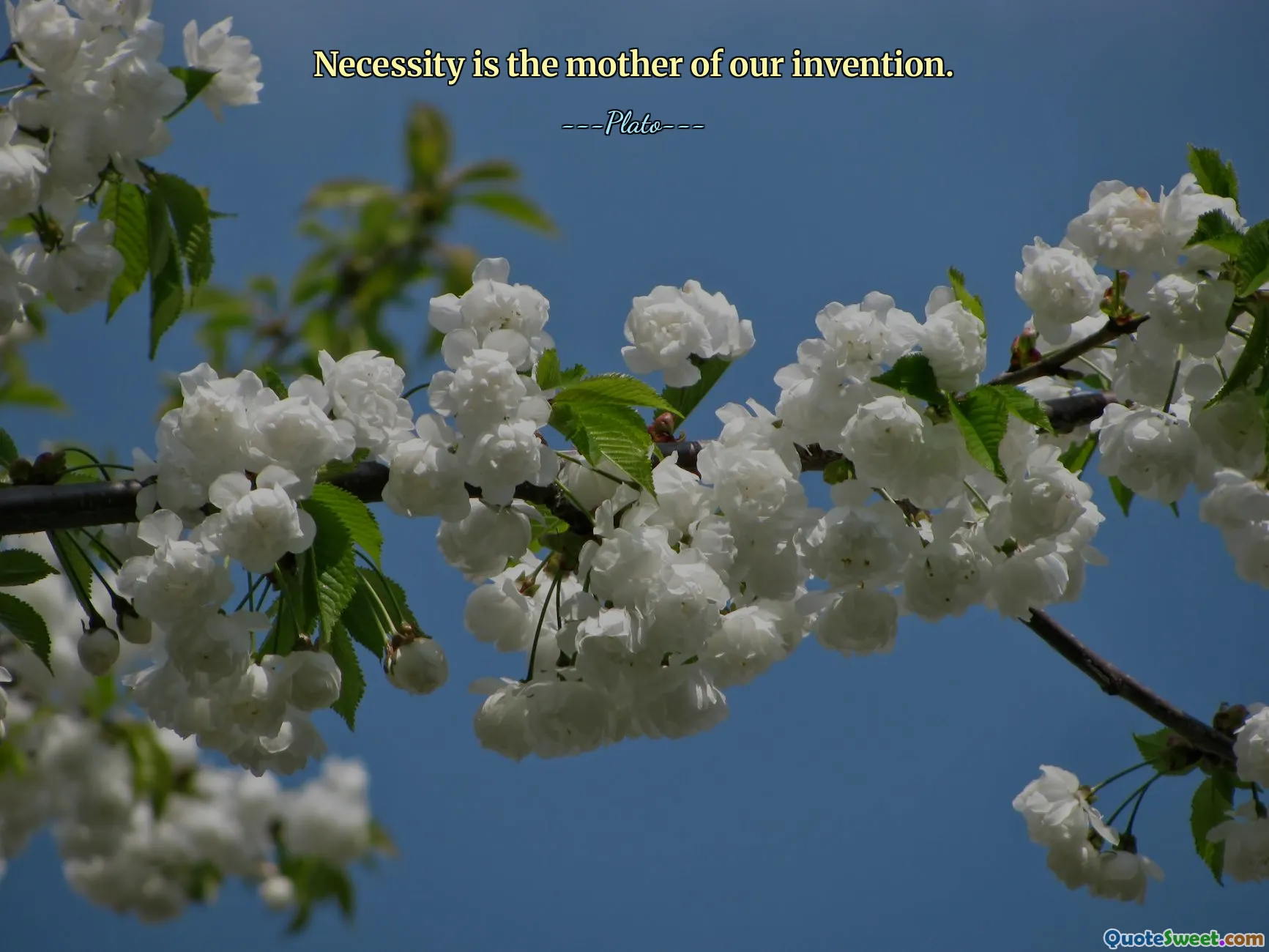
Necessity is the mother of our invention.
📖 Plato
This quote, often attributed to the philosopher Plato, conveys a profound truth about human creativity and innovation. The notion that necessity drives invention highlights how challenges and pressing needs often compel people to find novel solutions and think outside conventional boundaries. When faced with difficulties or urgent problems, the human mind is forced into a heightened state of creativity that results in the birth of new ideas, tools, or methods. Historically, many groundbreaking inventions have come from moments of desperation or critical need—whether it's medical breakthroughs during pandemics or technological advances during times of societal change.
This concept suggests a positive perspective on adversity, viewing it not merely as hardship but as a catalyst for progress and growth. It reminds us that our capacity for innovation is often unlocked by the constraints and limitations we encounter. Moreover, it implies that invention is not just a random act but a purposeful response to specific demands. This has broad implications for how societies structure challenges, prioritize problems, and allocate resources—encouraging environments where necessity can spur creativity.
In everyday life, this quote encourages resilience and resourcefulness. Instead of succumbing to difficulties, one can harness necessity as a motivational force to explore new avenues and possibilities. Overall, the quote encapsulates an essential aspect of human nature—the ability to adapt and innovate, turning needs into inventions that improve our existence and drive civilization forward.











